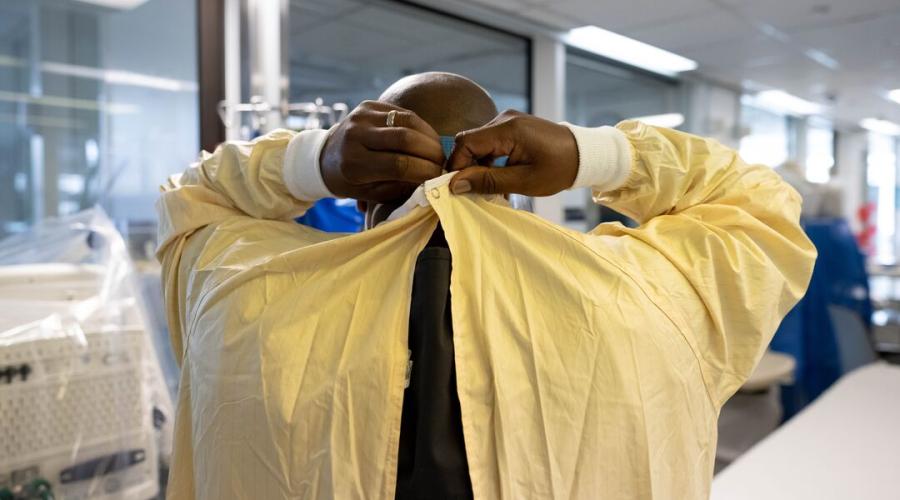
Perseverance: Stories of Success Among Black Physicians
How do Black physicians navigate academic medicine to find success? What are the contributing factors, and how can academic institutions better welcome their impact?
April Edwell, MD, Assistant Professor of Pediatrics in the Division of Critical Care, sought to answer these questions through interviews with 15 of her peers across pediatric critical care. Her research explores the experience of Black physicians through an antideficit lens—a focus on the experiences and resources that contributed to their success.
Published in Academic Medicine, the paper details three main enablers of success: harnessing blackness as a superpower, leaning in to lead, and successfully navigating the “unwritten rules.”
Read our Q&A with Edwell about the importance of celebrating the strengths of Black physicians and supporting those who bring new perspectives to academic medicine.
How did the study participants perceive and navigate additional responsibilities placed on them due to their race?
The landscape for these Black physicians was undoubtedly filled with external obstacles, including racism.
In our study, participants acknowledged that they felt the responsibility of a “minority tax,” and connected it to ways to enable achievement and become more visible in their institution. For some participants, this was a powerful intrinsic motivator—the desire to help those coming up behind them.
How did interviewees view their Black identity, and how did this influence their professional journeys?
Most viewed it as an identity-based superpower. They used it to connect with patients, families, and other healthcare workers. They also used it to tap into their ancestors and a lineage of strength and achievement. Leadership was often viewed as a type of calling or responsibility.
One interviewee remarked: “It’s incumbent upon all of us to serve as role models in whatever way that we can, because at the end of the day, when I look up, do I see people like me?”
What story develops when we look at how study participants achieved success?
When we look into the ways our participants demonstrate expertise, leadership, and resourcefulness, the narrative shifts from generalizing issues about Black physicians to honoring their current contributions. Academic medicine has much to gain by leveraging these strengths, talents, and ingenuity.
How can institutions better recognize and value the contributions of Black and other underrecognized physicians?
There have been strides made by some institutions, such as considering mentorship and sponsorship duties for promotion in academic settings. It’s important that institutions avoid limiting “worthwhile” scholarship to traditional research that has historically excluded Black folx.
Many people who were interviewed described what they saw as a gap between their self-identified achievements and those things that were deemed valuable within academic medicine—an under-recognition of achievement.
We must remember to value different types of thinkers and problem solvers. The landscape of challenges to Medicine is not homogenous, and our approach to them should not be either.
Edwell is developing an anti-racism curriculum for pediatric residents at UC San Francisco. Alongside her research, Edwell published a personal piece, “Dear Black Folx in Academic Pediatrics,” where she shares her own experiences and imagines a space “where Black folx can be our full Black selves and be seen as experts in academic medicine without having to make ourselves smaller or more palatable.”
